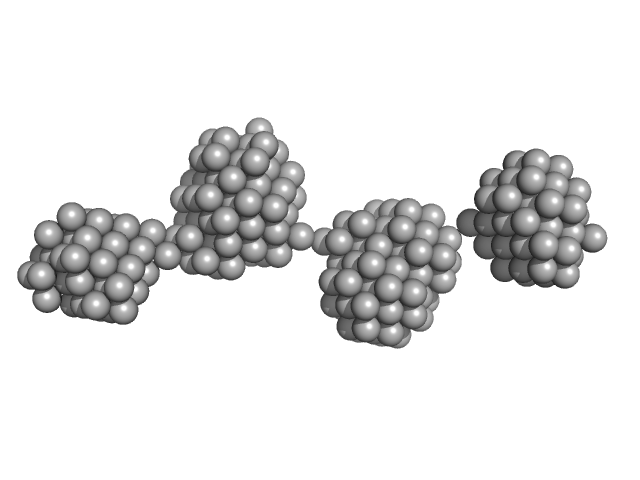|
Synchrotron SAXS data from solutions of Epstein-Barr nuclear antigen 2 (EBNA2 Type2, amino acids 348-422) in 20mM Tris-HCl, 100mM NaCl, 2% Sucrose and 1mM TCEP, pH 7.5 were collected on the B21 beam line at the Diamond Light Source storage ring (Oxfordshire, UK) using a Pilatus 2M detector at a sample-detector distance of 4.0 m and at a wavelength of λ = 0.1 nm (l(s) vs s, where s = 4πsinθ/λ, and 2θ is the scattering angle). The sample was measured using size exclusion chromatography SAXS (SEC-SAXS) at 25°C. 100 successive 3 second frames were collected through the SEC sample elution peak. The data were normalized to the intensity of the transmitted beam and radially averaged and the scattering of an appropriate solvent-blank was subtracted.
SEC-SAXS was performed using the following parameters: Column type: S200 3.2/300 increase; Flow rate: 0.075 ml/min; Injection volume: 45 µl; Sample injection concentration: 4.6 mg/ml.
|
|
 s, nm-1
s, nm-1

